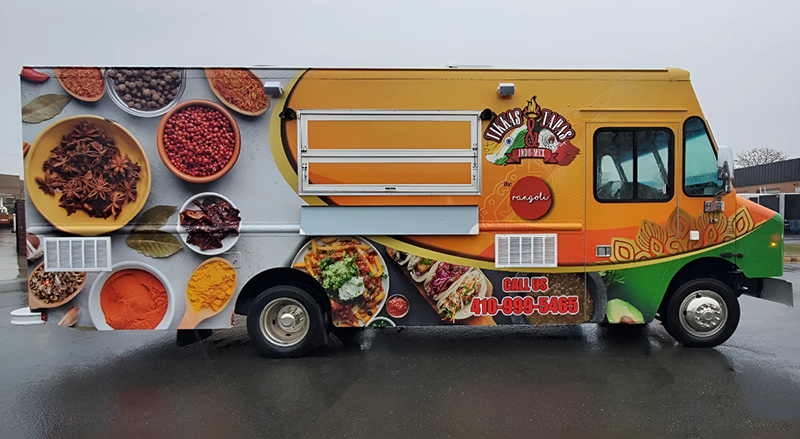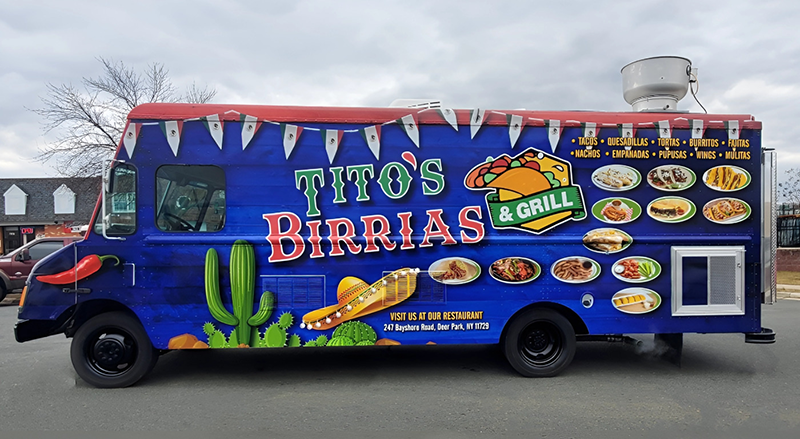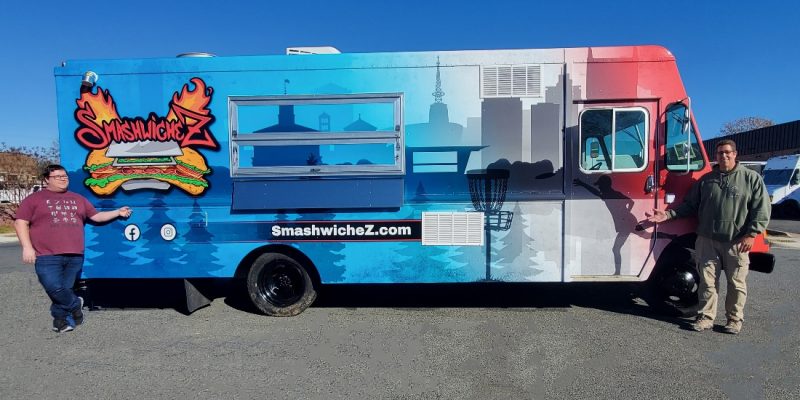Embarking on a food truck venture can be an exciting journey filled with culinary creativity and entrepreneurial spirit. However, without careful planning and awareness of common pitfalls, new food truck owners may face challenges that impede their success.
Here’s a comprehensive guide to avoiding common mistakes and ensuring your food truck business thrives.
1. Poor Location Selection
Conduct thorough market analysis to determine prime locations with high foot traffic. Consider local events, business districts, and university areas that align with your target audience. Always check local regulations and obtain the necessary permits to operate in your chosen areas.

2. Inconsistent Branding and Marketing
Develop a cohesive branding strategy, incorporating a memorable logo, consistent color scheme, and engaging social media presence. Use platforms like Instagram and Facebook to showcase your menu items and interact with your audience. Consistency in branding across social media, websites, and local listings builds trust and recognition.
Related Article:
3. Poor Inventory Management
Effective inventory management is essential to ensure the smooth operation of your food truck business. Poor inventory management can lead to overstocking, wastage, or shortages, all of which can impact your bottom line.
Implement a reliable system to track your inventory, monitor stock levels, and identify popular and slow-moving items. This will enable you to optimize your purchasing decisions, minimize waste, and meet customer demand efficiently.
4. Ignoring Customer Feedback
Customer feedback is invaluable for improving your food truck business. Ignoring or dismissing customer feedback can lead to missed opportunities for growth and improvement.
Actively listen to your customers, whether it’s through face-to-face interactions, online reviews, or surveys. Take their suggestions and criticisms to heart and make necessary adjustments to enhance their dining experience.
By prioritizing customer feedback, you can build a loyal customer base and drive repeat business
5. Underestimating Competition
A common mistake made by many food truck owners is underestimating their competition. Whether it’s other food trucks or brick-and-mortar restaurants in the area, it’s crucial to research and understand your competition to stay ahead of the game.
Analyze their menus, pricing strategies, and marketing tactics to identify opportunities for replication, differentiation, and improvement.
Related Article:
6. Overcomplicating Operations and Menu
Simplicity is often key when it comes to running a successful food truck business. Overcomplicating your operations and menu can lead to inefficiencies, longer wait times, and increased costs.
Streamline your processes, ensuring that your menu items are manageable and can be prepared quickly without compromising on quality. Focus on a few signature dishes that showcase your culinary expertise and resonate with your target audience.
By simplifying your operations and menu, you can provide a seamless and enjoyable dining experience for your customers.
7. Neglecting Food Safety and Hygiene Standards
Maintaining high standards of hygiene and food safety is non-negotiable in the food truck industry. Neglecting these standards can not only lead to health code violations but also harm your customers’ health and damage your reputation.
Make sure to follow proper food handling procedures, regularly clean and sanitize your equipment, and have a system in place for monitoring food temperatures. Train your staff on these protocols and conduct regular inspections to maintain compliance.
Prioritize the safety and well-being of your customers to maintain their trust and loyalty.
8. Poor Financial Planning
Running a food truck business requires a significant investment and poor financial planning can quickly lead to failure. It’s crucial to carefully budget and track all expenses, including purchasing ingredients, vehicle maintenance, permits, and marketing costs.
Consider seeking professional advice from an accountant or financial advisor to create a solid financial plan that accounts for potential risks and challenges.
By effectively managing your finances, you can make informed decisions that support the growth of your food truck business.
9. Overlooking Licensing and Permits
Complying with licensing and permit requirements is essential for the legal operation of your food truck business. Neglecting these obligations can result in fines, closures, or damage to your reputation.
Research and obtain the necessary licenses and permits specific to your location, including health permits, business permits, and parking permits. Adhere to all local regulations, such as zoning restrictions, noise ordinances, and hours of operation.
By fulfilling your legal obligations, you can operate your food truck business with peace of mind and build a solid foundation for success.
10. Lack of Business Systems and Processes
Many first-time food truck owners may underestimate the importance of having efficient systems and processes in place. It’s crucial to have a well-organized system for managing inventory, tracking sales, scheduling staff, and handling customer orders.
Invest in technology and software that can streamline these tasks and save you time and effort. Develop standard operating procedures for your employees to follow, ensuring consistency and quality in your services.
By implementing effective business systems and processes, you can run your food truck more efficiently and focus on delivering delicious food to your customers.
11. Ignoring Seasonal Trends and Customer Preferences
The food industry is constantly evolving, with new trends, flavors, and dietary preferences emerging all the time. It’s essential to stay up-to-date with these changes and adapt your menu or offerings accordingly.
Be aware of seasonal produce availability and incorporate it into your dishes whenever possible. Keep track of customer feedback and adjust your menu based on their preferences.
By staying current with seasonal trends and catering to customer preferences, you can attract more customers and keep them coming back for more.
Related Article:
12. Not Building Community Relations
Running a successful food truck business is more than just selling food – it’s about building relationships with your customers and the community.
Participate in local events, collaborate with other small businesses, and engage with your customers on social media.
By building strong community relations, you can create a loyal customer base and generate positive word-of-mouth for your business.

Conclusion
Running a successful food truck business requires more than just culinary skills. By avoiding these common mistakes and implementing strategic planning and operations, you can set your food truck on a path to success. Remember, continuous improvement and adaptability are key to thriving in the dynamic food truck industry.
For those looking to start a food truck business or enhance their current operation, Elhaj Custom Food Trucks & Trailers offers expert advice and high-quality customization services to ensure your mobile kitchen is equipped for success. Contact us today to learn more about our services and how we can help your food truck business reach its full potential.

